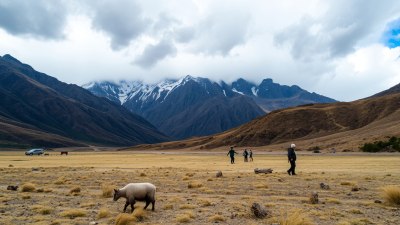Find Secret Hiking Trails Without an App
Discover hidden paths, breathtaking views, and local trails without relying on technology

Some of the best hikes aren’t on Google Maps or popular trail apps—they’re hidden gems known only to locals and adventurous explorers. While apps make it easy to find well-known routes, they often lead to crowded, overused trails. If you’re looking for a more authentic, quiet, and off-the-beaten-path hiking experience, here’s how to find secret trails without relying on technology.
Ask Locals—They Know More Than Any App
Locals, especially outdoor enthusiasts, often know about trails that aren’t widely documented. Instead of searching for “best hikes” online, try these methods:
- Talk to park rangers: They know about lesser-used paths and scenic detours that aren’t on official maps.
- Chat with locals at outdoor stores: Hiking gear shops and camping outfitters often have staff who hike regularly.
- Visit a small-town café or pub: In rural areas, striking up a casual conversation might lead to a tip about a hidden trail.
Look at Old-School Paper Maps
Before apps, hikers used physical maps to navigate. These maps sometimes show forgotten trails that aren’t on digital platforms. Check:
- National Park visitor centers: They often have detailed paper maps with all trails, including those less advertised.
- Local guidebooks: Some regions have hiking books written by locals that reveal hidden spots.
- Topographic maps: These show natural landscapes, making it easier to find unmarked trails.
Follow Footpaths and Unmarked Trailheads
Sometimes, secret trails start right in front of you—you just need to look closely. Signs that a hidden trail might be nearby include:
- Worn-down paths leading off main trails.
- Unmarked trailheads near picnic areas, old fire roads, or backroads.
- Hiker-made cairns (small rock piles) marking an unofficial route.
Use Satellite Images Instead of Hiking Apps
If you want to scout a location in advance but avoid popular hiking apps, try using satellite images from Google Earth. This lets you spot:
- Clearings and ridgelines that might have trails.
- Old logging roads that lead to scenic viewpoints.
- Potential loop trails not listed on official hiking sites.
Follow Waterways and Natural Landmarks
Many hidden trails naturally follow rivers, creeks, or ridgelines. If you’re exploring a new area:
- Follow a stream upstream—it often leads to waterfalls or secluded spots.
- Look for breaks in tree lines—these may indicate trails leading to a viewpoint.
- Walk along old railroads or abandoned roads—they sometimes lead to forgotten trails.
Join a Local Hiking Group or Meetup
Many seasoned hikers know about unlisted trails but don’t share them online to keep them preserved. Instead, they share them by word of mouth with like-minded adventurers. You can find secret trails by:
- Joining a local hiking group (check bulletin boards in outdoor stores or coffee shops).
- Attending group hikes in your area.
- Talking to experienced hikers who know trails beyond the tourist maps.
Secret Trails Are Waiting—Go Find Them
The best hiking adventures don’t always come from an app. By talking to locals, using paper maps, following natural paths, and trusting your instincts, you can uncover hidden trails that most people never find. Step off the beaten path and see what’s waiting beyond the marked routes—you might just find your new favorite hike.











